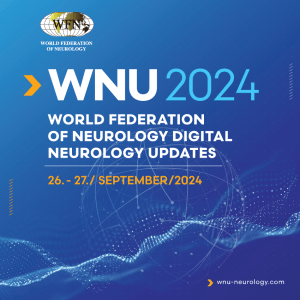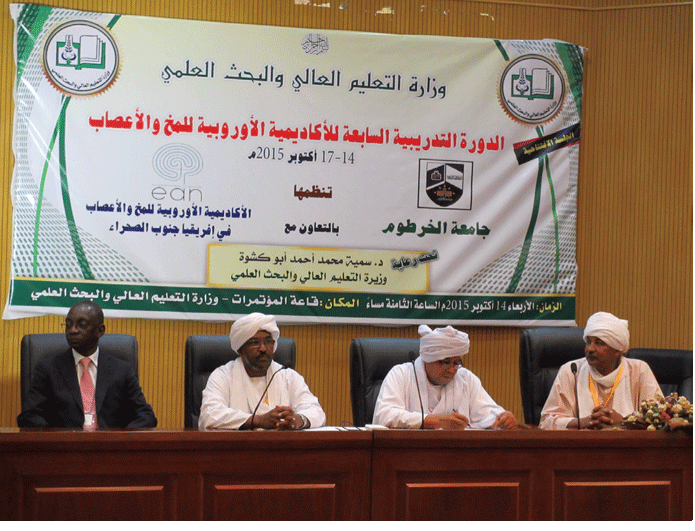
The 7th RTC took place in Khartoum, Sudan and was hosted by the University of Khartoum. The RTC, organised by the EAN, was supported by a consortium of European and international scientific societies:
- University of Khartoum, Sudan
- PAANS – Pan African Association of Neurological Sciences
- WFN – World Federation of Neurology
- AAN – American Academy of Neurology
- IBRO – International Brain Research Organisation
- EHF – European Headache Foundation
- WSO – World Stroke Organisation
- LINF Lundbeck International Neuroscience Foundation
An unrestricted educational grant was also obtained from the Lundbeck International Neuroscience Foundation. Our gratitude goes to the local organising team led by Osheik Seidi. His help and the support of the University of Khartoum and the Faculty of Medicine at the University was essential for the success of the RTC.
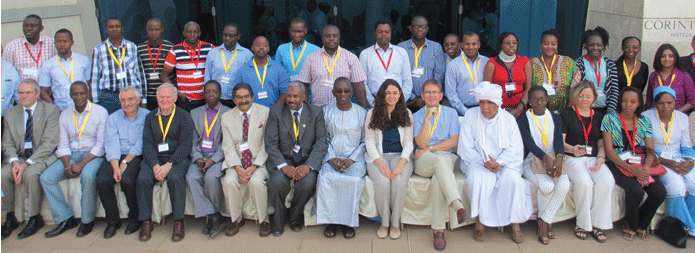
Thanks to the support of these societies, 33 young doctors and trainees coming from 19 SSA countries could be invited to the 7th RTC and were supported by a scholarship from the RTC fund. These individuals were selected and put forward by their Head of Department as potential course participants. Thus these selected participants represent some of the very best trainees from across Africa. Many doctors and trainees from the University of Sudan as well as other medical training centres attended the course and the RTC counted 123 registered participants representing 20 SSA countries. The Faculty for the course was also truly international and its members represented 13 different countries. This three-day RTC had two main themes: stroke and neuro-paediatrics.
RTC Faculty and the scholarship students
Faculty: Osheik Seidi (Sudan), Erich Schmutzhard (Austria), Riadh Gouider (Tunisia), Amadou Gallo Diop (Senegal), Peter Sandercock (UK), Jose Ferro (Portugal), Raj Kalaria (UK), Farrah Mateen (USA), Marieke Dekker (Tanzania), Charles Newton (Kenya), Richard Idro (Uganda), Tim Lynch (Ireland), Alvin Ndondo (South Africa), Hannah Cock (UK). Case presenters Anne Pita Lomole (South Sudan), Yohannes Debebe (Ethiopa), Ziryab Imad Mahmoud (Sudan).
The core organisation of the course is led by the EAN Task Force “Neurology and Africa” chaired by Prof Erich Schmutzhard (Austria) together with Mrs Eveline Sipido, EAN Liaison Officer and responsible for overall organisation of the RTC. The high international reputation for academic excellence of the course is underlined by the wide range of learned societies and institutions that support this annual course. Also the support received from major regional institutions such as the Sudanese Ministry of Higher Education and the University of Khartoum, underline the importance of the event within Africa.
The format of the course was a mixture of lectures in the morning, supplemented by a case presentation fitting into the theme of the day. The case presenters were: Dr Yohannes Debebe (Ethiopia), Dr Anne Pita Lomole (South Sudan) and Dr Zyriab Imad Mahmoud (Sudan).
The afternoons were taken up with small group interactive workshops to discuss cases brought by the experts; these rotating sessions were intensive, but proved particularly popular with the participants (and enjoyable for the Faculty!). The trainees brought a great many questions that arose from their daily practice; this unique opportunity for them to ask the Faculty questions and to network with their peers from across the continent was something they really valued. There was also a formal “Meet the Professor” Session that was very much appreciated. Hannah Cock introduced all to the EAN’s eBrain on-line learning resource, which will be made available to all HINARI countries free of charge.
An evening session hosted by the Faculty of Medicine of the University of Khartoum and dedicated to the analysis of video presented clinical cases was lead by Timothy Lynch, Hannah Cock and Riadh Gouider. This open session saw the participation of an impressive number of medical students.
It was a real privilege to attend the course as a teacher and to learn from the clinical and scientific expertise of the faculty in the sessions and in the discussions. While the international faculty might bring knowledge of recent scientific advances to the table, the regional faculty brought their extremely rich clinical experience and wisdom in how to apply that knowledge in the diverse health care systems of Africa. Likewise, the trainees very much appreciated this unique opportunity for them to ask the Faculty questions and to network with their peers from across the continent.
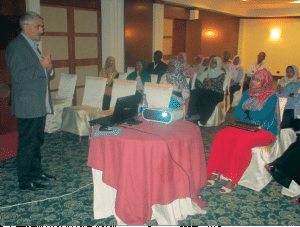
The meeting was organised to a very high standard, and clearly meets the need to build capacity in caring for people with neurological disorders in the African continent, where the burden of disease related to both communicable and non-communicable diseases of the nervous system is high; stroke in adults and – in children – epilepsy and infections being disorders with a high burden of disease in the region.
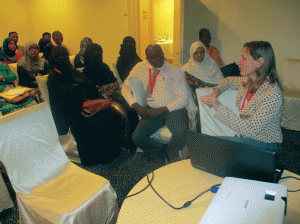
To meet this continuing need, the EAN-led planning group met in Khartoum to plan the next course. The participants to the 7th RTC were asked to list up to three topics of interest they would like to see addressed in a future RTC. From the compilation of the topics received, two that had the highest request were identified for the 2016 RTC. July 14th – 16th 2016 and the main themes will be 1) Spinal cord diseases, 2) Neurodegenerative diseases (including post stroke cognitive decline and dementia), 3) Emerging and vanishing infections of the nervous system in SSA. Prof Jean Kaboré, University of Ouagadougou, will be the local host of the 8th RTC.
Given the very large numbers of questions I fielded about stroke over the course of the RTC, I have no doubt that the support from WSO will prove to have been an extremely cost-effective investment that will help develop a cadre of stroke neurologists in Africa to tackle the emerging epidemic of NCDs there. Finally, the generous gift of one year’s free membership of the WSO to all course participants was very warmly received.
ACNR 2015;15(5):24-25. Online 13/11/2015

